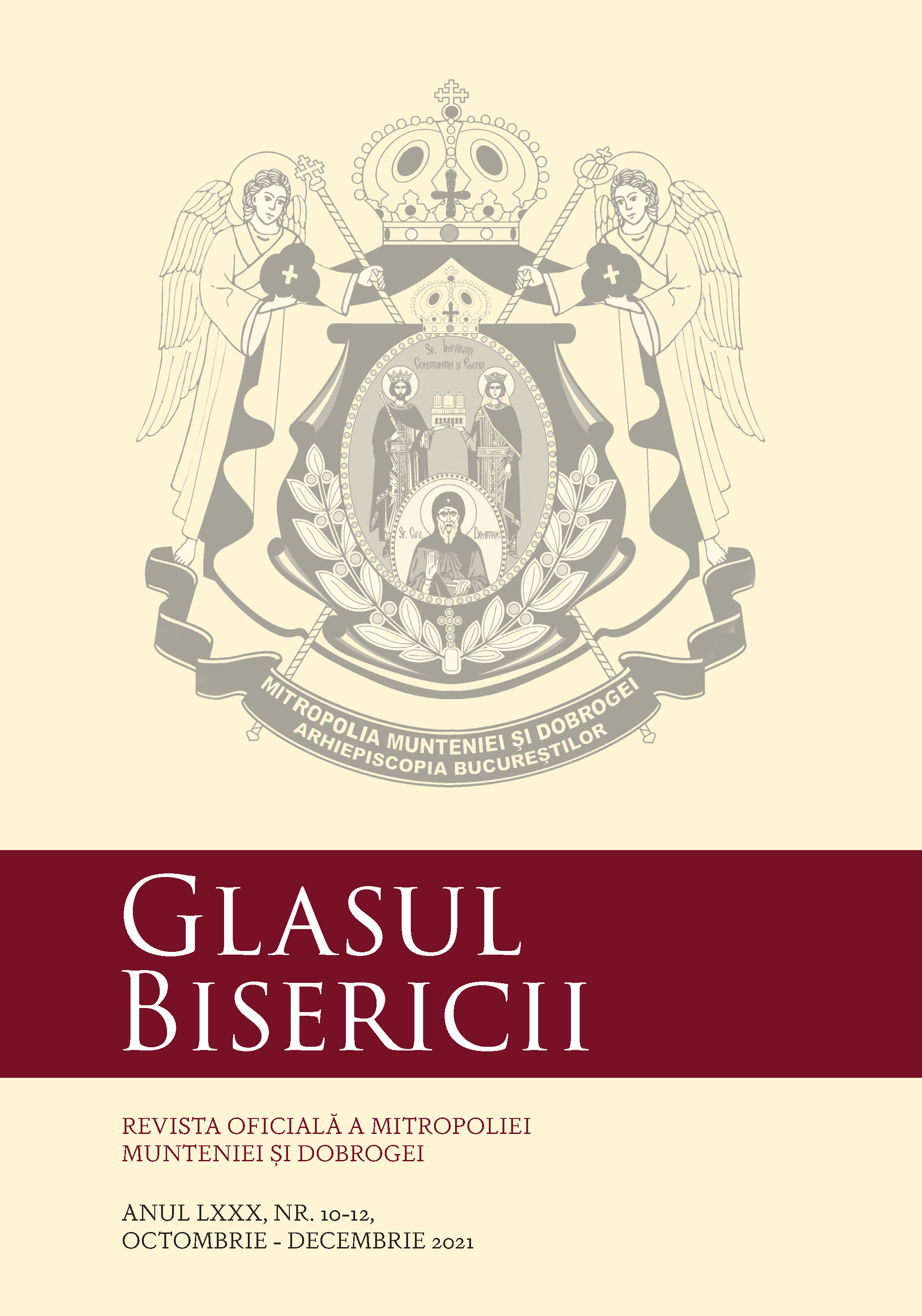Triadologie, hristologie și doctrina epektasisului în „Despre rugăciunea domnească”, tratat al Sfântului Grigorie al Nyssei
Triadology, Christology and the doctrine of epektasis in the „Homilies on the Our Lord” of Gregory of Nyssa
Author(s): David Gabriel CarpenSubject(s): Christian Theology and Religion, Theology and Religion, Systematic Theology, Eastern Orthodoxy
Published by: Arhiepiscopia Bucureștilor
Keywords: aint Gregory of Nyssa; Our Father; communion; Christ; grace; salvation; faith;
Summary/Abstract: Being recognised as one of the major Fathers in the early Christian period, in terms of his contribution not only in clarifying the orthodox dogma, which faced the anomeean heresy of Eunomius, but also in expressing the mysteries concerning the deeper aspects of our faith, Saint Gregory of Nyssa (335-394/395) gained an undisputed place among the so called „mystical theologians”. The manner in which the Cappadocian Father sees the community between man and God, a very personal God, not an abstract idea or essence, marks the starting point of his theological approach, centred on the soteriological aspect, which is the beginning of man’s spiritual journey towards his Creator, and also his Father, with the help of the grace received by all of humanity through our Saviour, Jesus Christ, and His Death and Ressurection, which all of us assume when we are baptised. But, besides our new life, which Christ made possible for us to be part of, He also instructed us how to persist in the communion with God, which is the fullness of life by His nature, by teaching how to pray to God. Saint Gregory of Nyssa, in his commentary on the prayer „Our Father”, points out, in the most sublime and inspiring way, the dynamic aspects of the man-God communion, or, as we can also name it, the spiritual son-spiritual Father communion.
Journal: Glasul Bisericii
- Issue Year: 80/2021
- Issue No: 10-12
- Page Range: 141-164
- Page Count: 24
- Language: Romanian
- Content File-PDF

